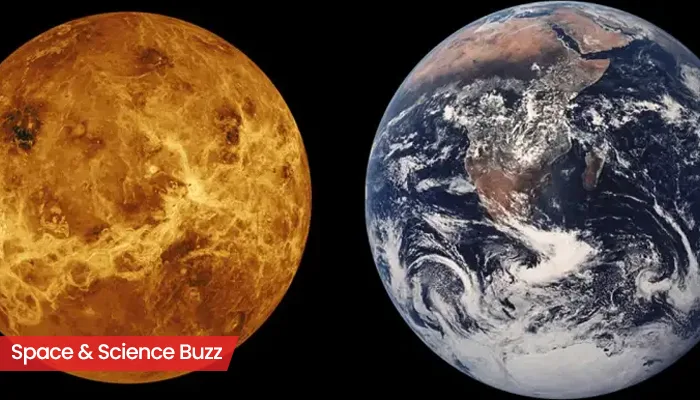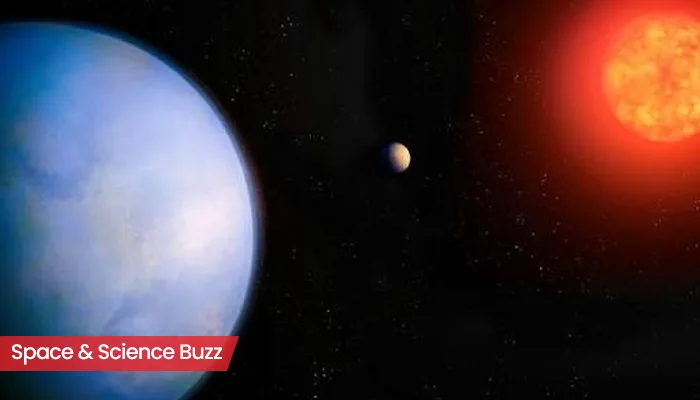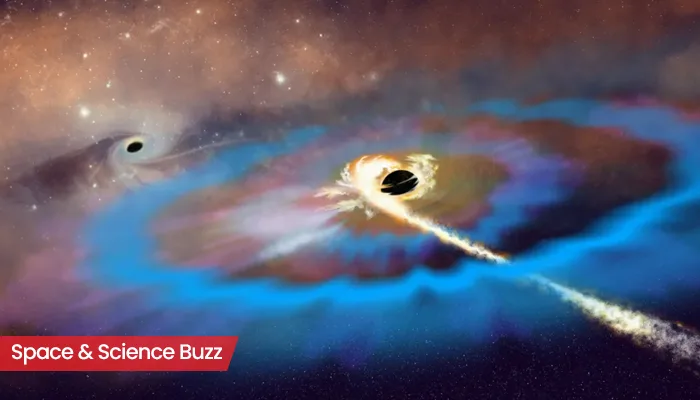
Here are today’s most important updates from the realm of Science and Space.
Space Ballot: Sunita Williams to Cast Her Vote from Orbit
Sunita Williams, currently serving as the commander of the ISS, will exercise her democratic right by voting from space. The astronaut will first complete a Federal Post Card Application to request an absentee ballot. Then, she will fill out the electronic ballot on the ISS computer system through NASA's Space Communication and Navigation (SCaN) Program. The ballot will then travel through the NASA’s Near Space Network (NSN) through the Tracking and Data Relay Satellite System.
Sunita’s vote will be transmitted to a ground antenna at NASA's White Sands Test Facility in New Mexico before transferring to the Mission Control Center at Johnson Space Center in Houston. The encrypted ballot will then be sent to the responsible county clerk for processing. Only the astronaut and the county clerk will have access to see the ballot.
UNICEF and DRC Launch Critical Mpox Vaccination for Vulnerable Populations
Authorities in Democratic Republic of Congo begin vaccinating citizens in Goma against mpox, using vaccines donated by EU and US pic.twitter.com/jwxKwtu0lM
— TRT World Now (@TRTWorldNow) October 6, 2024
(Credit - X/@TRTWorldNow)
The Democratic Republic of the Congo (DRC), with support from UNICEF launched its mpox vaccination campaign for vulnerable groups in high-priority areas. It will be administered on children and pregnant women. In 2024, The DRC has reported more than 30,000 suspected cases of mpox and over than 900 deaths affecting Children under 15 severely. Frontline health workers and others with compromised immune systems, will be getting the vaccination doses this time. Recently, UNICEF has launched an appeal for US$35 million funding to support comprehensive response plan against the mpox outbreak.
The Surprising Science of Names and Pronouns: How the Brain Sees Them as One

In a recent study, a team of neuroscientists have detected that the human brain's same neurons get activated when they hear any person's name or pronouns like "he", "she" or "they". It was observed that concept cells of human brain get activated when the picture of someone specific is viewed or when they listen or read that person's name or even when they recall that person from the memory.
"Theories about the evolving mental representation of the narrative during reading suggest that previously read words are stored in working memory so that they can be combined with new information. How brain networks implement such syntactic computations is a topic for future research, which can now be investigated," said the study author.
Refreezing the Arctic: Scientists’ Icy Solution to Global Warming
New study
— GO GREEN (@ECOWARRIORSS) September 21, 2024
Arctic has lost around a quarter of its cooling power since 1980
And Antarctica missing sea ice twice the size of Texas suggests we are witnessing a lasting “regime shift”, with severe consequences for ecosystems and global ocean circulation https://t.co/YWGvGQVVtf pic.twitter.com/WX26knO1Zb
(Credit - X/@ECOWARRIORSS)
Amidst rising global warming and climate change, scientists suggest an innovative way of "refreezing" the Arctic Sea. If no action is taken now, the ever-increasing climate change will turn the Arctic into an ice-free zone by 2030 summer, which will be disastrous for the Earth. Scientists are planning to pump seawater in different areas of the frozen Arctic Ocean, which is expected to freeze in winter and thicken the ice layer. Following this strategy, ice might last longer in the summer months, as per pilot scale study reports. Although, this is not a permanent solution, a scientist associated with the project mentioned it as ‘sticking plaster’.


.webp)
.WEBP)
.WEBP)
.webp)
.webp)


.webp)
.webp)
.webp)
